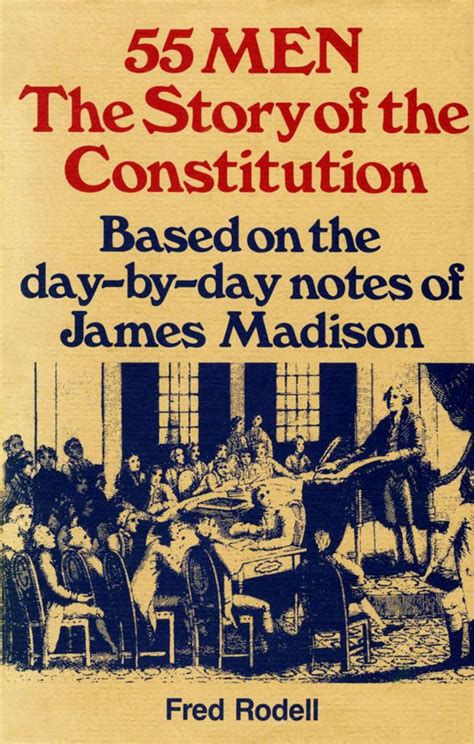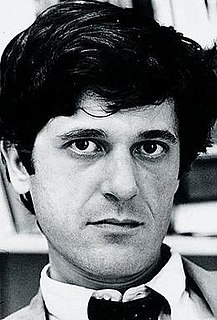A Quote by Roald Dahl
There are many other little refinements too, Mr. Bohlen. You'll see them all when you study the plans carefully. For example, there's a trick that nearly every writer uses, of inserting at least one long, obscure word into each story. This makes the reader think that the man is very wise and clever. So I have the machine do the same thing. There'll be a whole stack of long words stored away just for this purpose." Where?" In the 'word-memory' section," he said, epexegetically.
Quote Topics
At Least One
Away
Carefully
Clever
Each
Every
Example
For Example
He Man
Just
Least
Little
Long
Long Words
Machine
Makes
Man
Many
Memory
Nearly
Obscure
Other
Plans
Purpose
Reader
Said
Same
Same Thing
Section
See
Stack
Story
Study
Them
Thing
Think
Too
Trick
Uses
Very
Very Wise
Whole
Wise
Word
Words
Writer
Related Quotes
Behind every word a whole world is hidden that must be imagined. Actually, every word has a great burden of memories, not only just of one person but of all mankind. Take a word such as bread, or war; take a word such as chair, or bed or Heaven. Behind every word is a whole world. I'm afraid that most people use words as something to throw away without sensing the burden that lies in a word.
The Lawyers' trade is a trade built entirely on words. And so long as the lawyers carefully keep to themselves the key to what those words mean, the only way the average man can find out what is going on is to become a lawyer, or at least to study law, himself. All of which makes it very nice -- and very secure -- for the lawyers.
The secret of good writing is to strip every sentence to its cleanest components. Every word that serves no function, every long word that could be a short word, every adverb that carries the same meaning that’s already in the verb, every passive construction that leaves the reader unsure of who is doing what—these are the thousand and one adulterants that weaken the strength of a sentence. And they usually occur in proportion to the education and rank.
He had a word, too. Love, he called it. But I had been used to words for a long time. I knew that that word was like the others: just a shape to fill a lack; that when the right time came, you wouldn't need a word for that any more than for pride or fear....One day I was talking to Cora. She prayed for me because she believed I was blind to sin, wanting me to kneel and pray too, because people to whom sin is just a matter of words, to them salvation is just words too.
Yet each man kills the thing he loves, By each let this be heard, Some do it with a bitter look, Some with a flattering word, The coward does it with a kiss, The brave man with a sword! Some kill their love when they are young, And some when they are old; Some strangle with the hands of Lust, Some with the hands of Gold: The kindest use a knife, because The dead so soon grow cold. Some love too little, some too long, Some sell, and others buy; Some do the deed with many tears, And some without a sigh: For each man kills the thing he loves, Yet each man does not die.
Most people write the same sentence over and over again. The same number of words-say, 8-10, or 10-12. The same sentence structure. Try to become stretchy-if you generally write 8 words, throw a 20 word sentence in there, and a few three-word shorties. If you're generally a 20 word writer, make sure you throw in some threes, fivers and sevens, just to keep the reader from going crosseyed.
Sometimes language gets in the way of the story's feelings. The reader finds himself experiencing the language of the story rather than the story. The words sit there on the page like coins, with their own opacity, as though they're there for their own sake. "A man goes into a phone booth, stirring coins in his palm." "Stirring" is such an obviously selected word. You can feel the writer looking for the word as he sat at the typewriter.
Working with different people anyway is like life and meeting different people... as long as you can be empathetic, you can take a bit of them on and see what you can do to help their process. That said, my relationship with Woody Allen was trying to hang on his every word so that I could tell everybody what he said afterwards. But certainly, he was a very good example of somebody who you didn't hear talk above a very low volume for the entire time he was on-set.
It doesn't matter what word we use, if it has the same content, it will be treated in the same way. There are other words - there's "womanist," there's "mujerista," there's "women's liberationist" - all mean the same thing and they get the same ridicule. I think we just need to choose what word we feel comfortable with that says women are full human beings, and whatever that word is, it will get a lot of opposition. But it will also attract a lot of support. But this is a revolution, not a public relations movement.
I am a dreamer of words, of written words. I think I am reading; a word stops me. I leave the page. The syllables of the word begin to move around. Stressed accents begin to invert. The word abandons its meaning like an overload which is too heavy and prevents dreaming. Then words take on other meanings as if they had the right to be young. And the words wander away, looking in the nooks and crannies of vocabulary for new company, bad company.
Long ago, there was a noble word, liberal, which derives from the word free. Now a strange thing happened to that word. A man named Hitler made it a term of abuse, a matter of suspicion, because those who were not with him were against him, and liberals had no use for Hitler. And then another man named McCarthy cast the same opprobrium on the word. ... We must cherish and honor the word free or it will cease to apply to us.






































